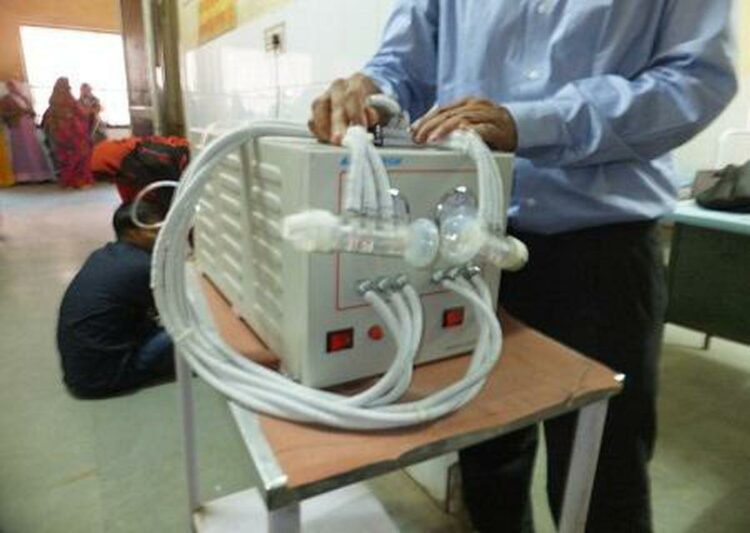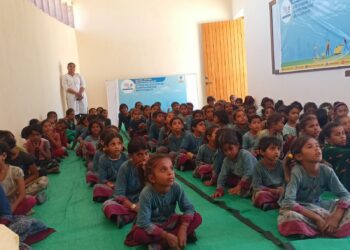A neonatal respirator installed at R.B.M. Government Hospital in Bharatpur. Special arrangement.
Installation of machines at Bharatpur proves successful
It has reported that following the successful installation of neonatal respirators in Bharatpur district, a public service institution has recommended that the machines be provided at all primary and community health centres in Rajasthan to save lives of infants. Bharatpur was the State’s first district to get respirators for infants at all health centres by 2020.
The respirators enable doctors and labour room staff to provide neonatal resuscitation with the correct physiological parameters to newborns having breathing problems. The babies born in rural hospitals can be resuscitated at the site of delivery within the “golden first minute”, giving them a chance to survive.
The Hindu report said, The Samriddh Bharat Abhiyan Sansthan stated here on Friday that the resuscitation of newborns through respirators would help reduce referrals to higher tertiary care health centres, resulting in a lesser number of deaths in transit. The indigenous devices, installed in Bharatpur, are sturdy and can be placed at the site of delivery, where even an unskilled paramedical staff with little or no training can operate it.

An average of 300 newborns at each primary health centre (PHC) and community health centre (CHC) were saved every year in Bharatpur. The Sansthan’s convener Sita Ram Gupta said the lives of about 16,000 infants had so far been saved in Bharatpur district with the help of neonatal respirators.
Mr. Gupta said that while the tendency of giving birth to lesser number of children was increasing among women with education and urbanisation, the number of healthy children was constantly declining because of malnutrition in newborns. This could lead to a reduction in the proportion of youths in the population in the near future, he said.
The installation of respirators at all PHCs and CHCs will help save asphyxiated newborn babies from death, retardation and mental disabilities. Mr. Gupta said an initiative by philanthropists and voluntary groups to donate respirators would go a long way in helping the government’s efforts to reduce neonatal mortality rate to a single digit, in accordance with the norms outlined in the Sustainable Development Goals.
Mr. Gupta, who earlier headed the Lupin Foundation in Bharatpur, said nutrition gardens should also be developed at all anganwadi centres in the State to take care of malnourished children. Since more than half of adolescent girls were in the grip of malnutrition because of anaemia, and one third of children faced it in their early lives, only a sustained drive on the lines of the pulse polio campaign could address the issue, he said.





















